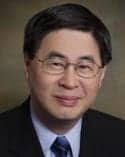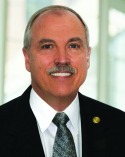More than 30 healthcare thought leaders convened in San Francisco recently for the COLA 2014 Leadership Summit, to discuss the future of laboratory medicine in the context of the Affordable Care Act (ACA).
COLA is the largest private accreditor of medical laboratories, serving more than 8,000 labs across the United States. The organization is an independent, nonprofit accreditor whose education programs and standards enable clinical laboratories and staff to meet requirements of the Clinical Laboratory Improvement Amendments of 1988 (CLIA) as well as other regulatory requirements.
Inspiration for this year’s summit was drawn from the Institute of Medicine’s 2012 study report, Best Care at Lower Cost, a comprehensive vision produced by the IOM committee on the learning healthcare system in America. The report is considered a follow-up to earlier sentinel studies, To Err is Human and Crossing the Quality Chasm, in which patient safety was the central theme. In its 2012 study, the committee concluded that new tools are available—specifically in computer power, connectivity, and organizational science—to achieve the vision of healthcare as a “learning” system.
Attendees at the summit included physicians, regulators, public health experts, medical laboratory scientists, manufacturers, nurse practitioners, and others. The group explored the implications of the dynamics of ACA and changing payment policies on quality and learning in laboratory medicine.
Summit Keynote Emphasizes the Power of Data
Emphasizing the power of laboratory data, summit keynote speaker Paul Tang, MD, vice president and chief innovation officer of the Palo Alto Medical Foundation, outlined a full range of challenges in healthcare as well as his hopes for the future. “We must be proactive about the future of laboratory medicine,” Tang noted. “By leveraging the power of data, we have the opportunity to capture and track patient outcomes, and to build feedback loops in a way that supports a culture of learning in healthcare.”
Tang reminded attendees that laboratory medicine is critical to patient care: more than 70% of medical decisions are based on lab data. “Laboratory science is a huge part of the digital infrastructure,” he noted. “You can further help physicians by leveraging the data in the electronic health record systems to interpret the test results within the unique context of the patient.”
Multidisciplinary Discussions
Participants engaged in small multidisciplinary group discussions around central questions, including a case study of California, to explore the current state of laboratory medicine. The groups also considered a possible future direction related to the true value of laboratory medicine within healthcare, and a vision for learning and continuous quality improvement. Finally, the groups suggested possible action items to close the gap. Among the topics discussed were:
- The impact of indiscriminate payment reductions in laboratory medicine
- The need to provide physician education related to laboratory utilization
- The shortage of laboratory professionals and how technology will change the vocation
- Required job skills in the future
- Continuing education models
- Organizational barriers to quality and learning
- The role of regulatory oversight
“By bringing together leaders across professional disciplines to discuss the role of laboratory medicine, we were able to better appreciate the complexity of the context and to set a broader direction grounded in the reality of real-world dynamics,” said Doug Beigel, CEO of COLA. “We are amidst tremendous change in healthcare, and it is critical that we begin to have more whole-system dialogue, so that when we make decisions impacting the quality of patient care we don’t create unintended consequences.”
Summit Dialogue Captured with Visuals
During the summer, COLA will release outputs from the event, including a paper reflecting the group’s attitudes, knowledge, and insights on the topic of creating a culture of quality in laboratory medicine. The outputs will also include infographic illustrations. During the event, visual storyteller Anthony Weeks captured knowledge and insights coming out of the discussion, bringing the dialogue to life. His visuals can be seen here, here, and here. For more information about COLA’s leadership summit, visit www.calabsummit.org.
COLA provides clinical laboratories with a program of education, consultation, and accreditation. The organization’s program is endorsed by the American Medical Association, the American Academy of Family Practitioners, and the American College of Physicians. It is also recognized by the Joint Commission on Accreditation of Healthcare Organizations. For more information about COLA accreditation services, educational products, and online educational opportunities, visit COLA.








